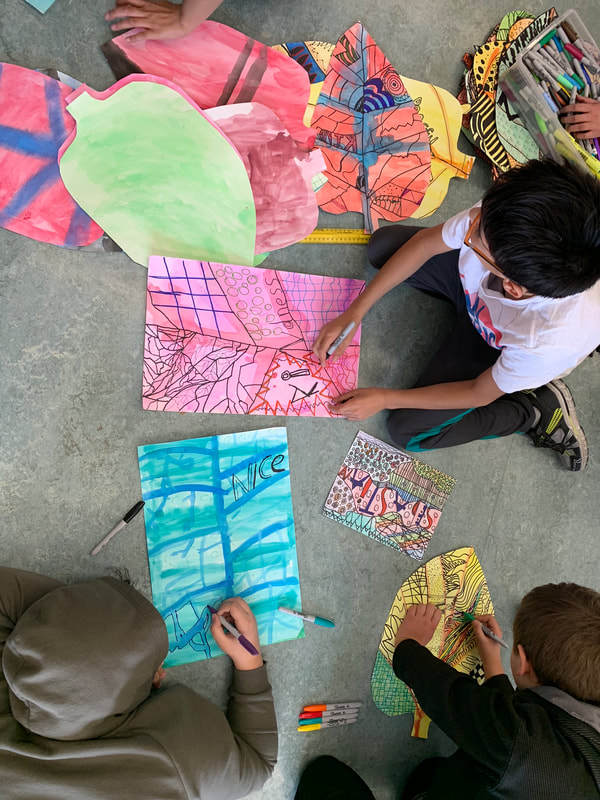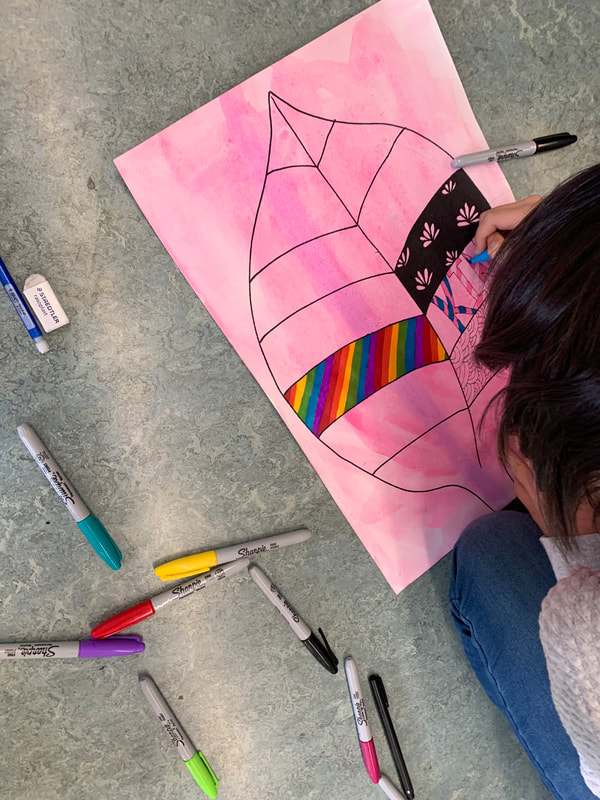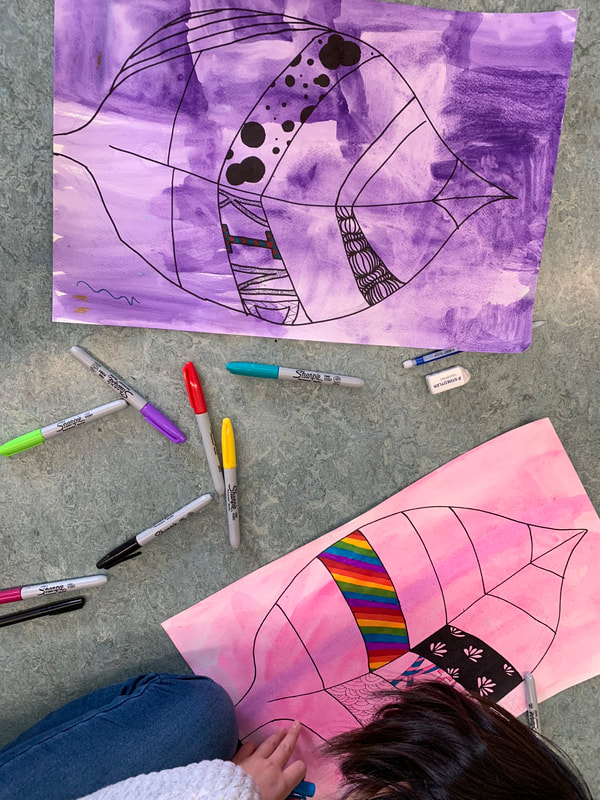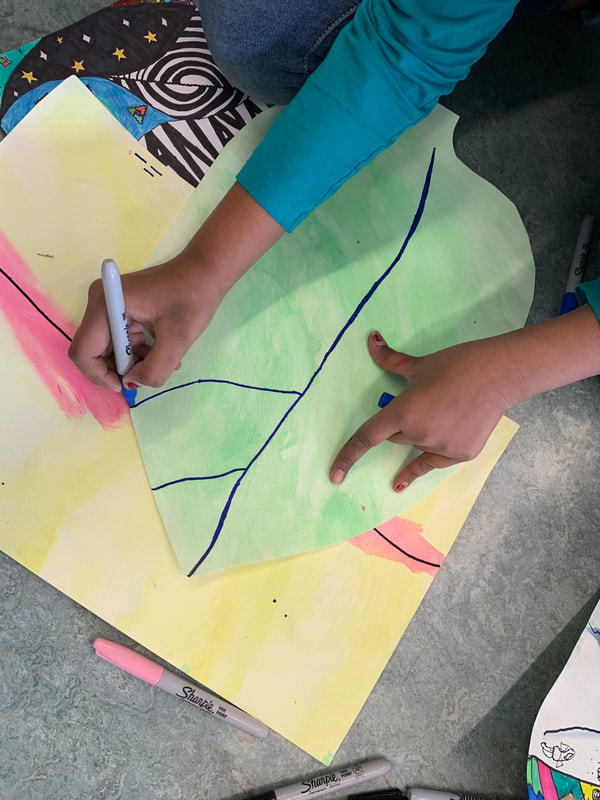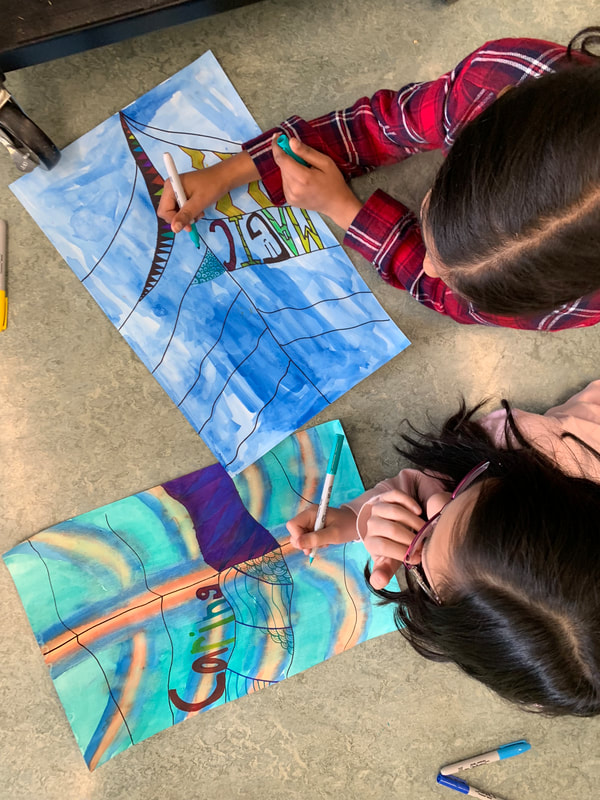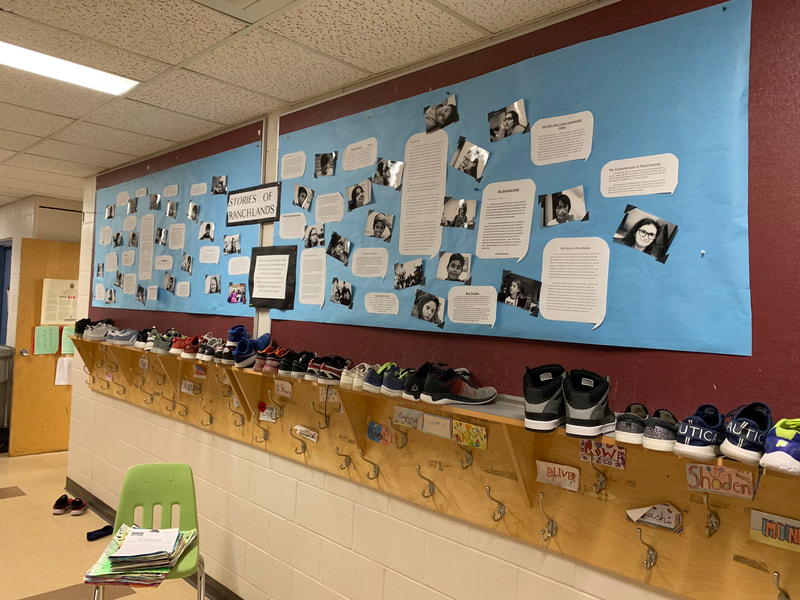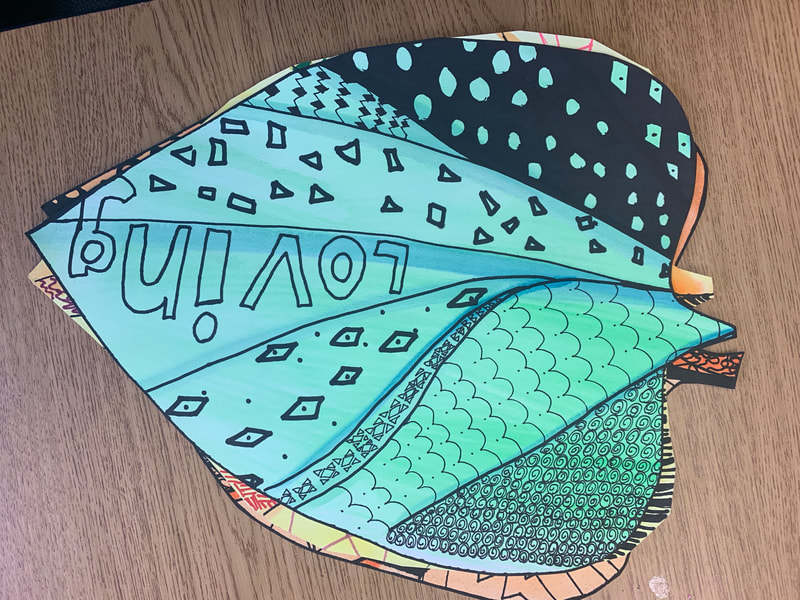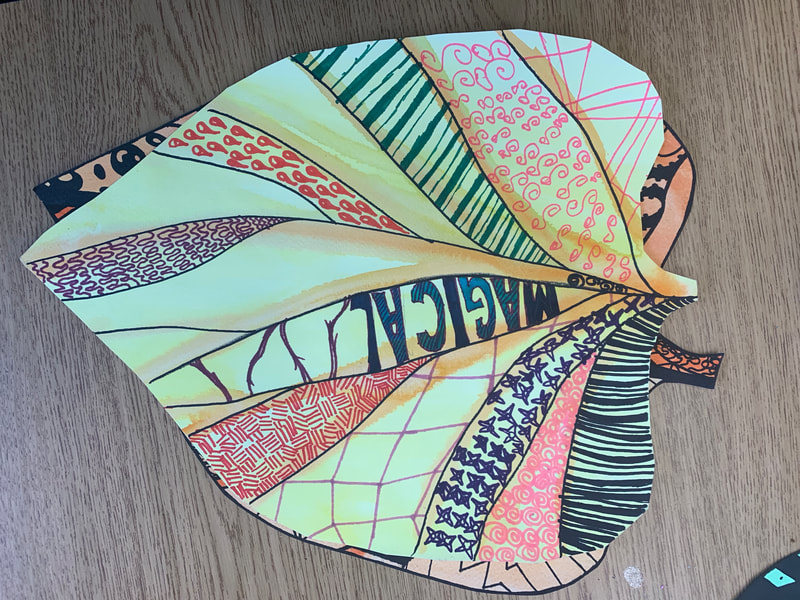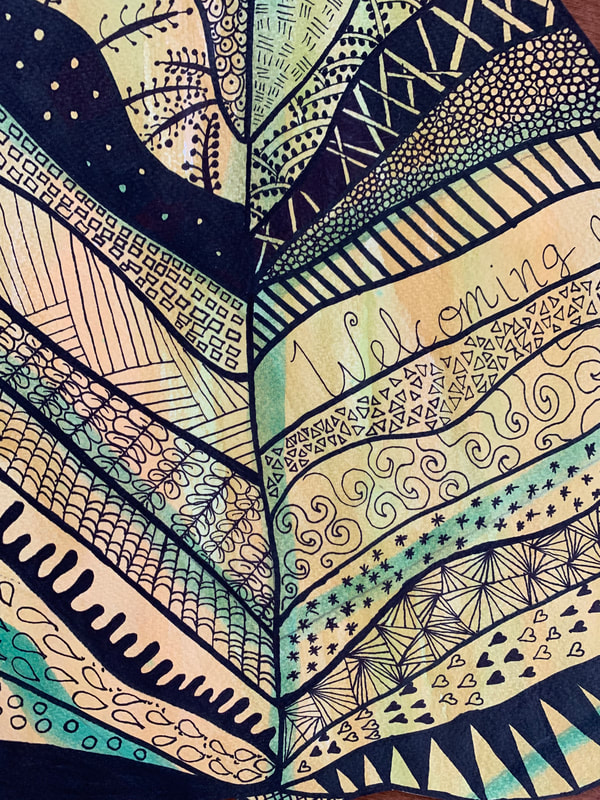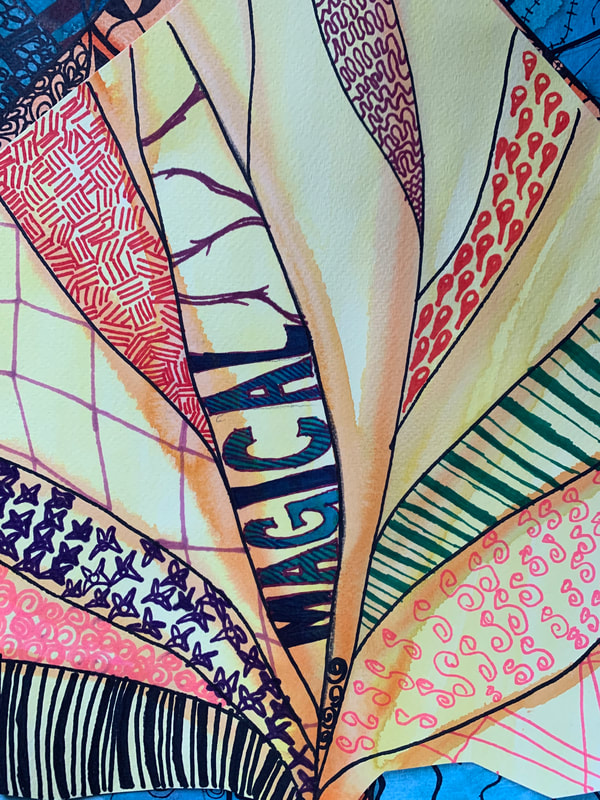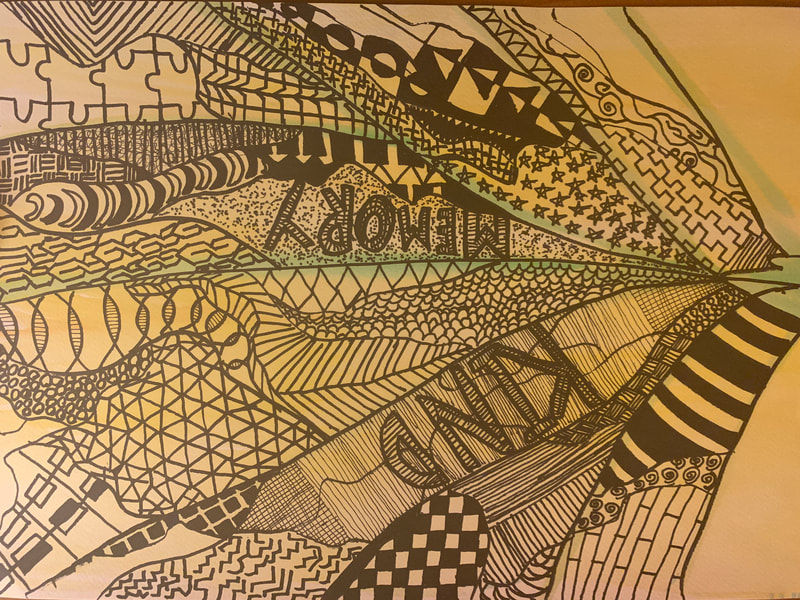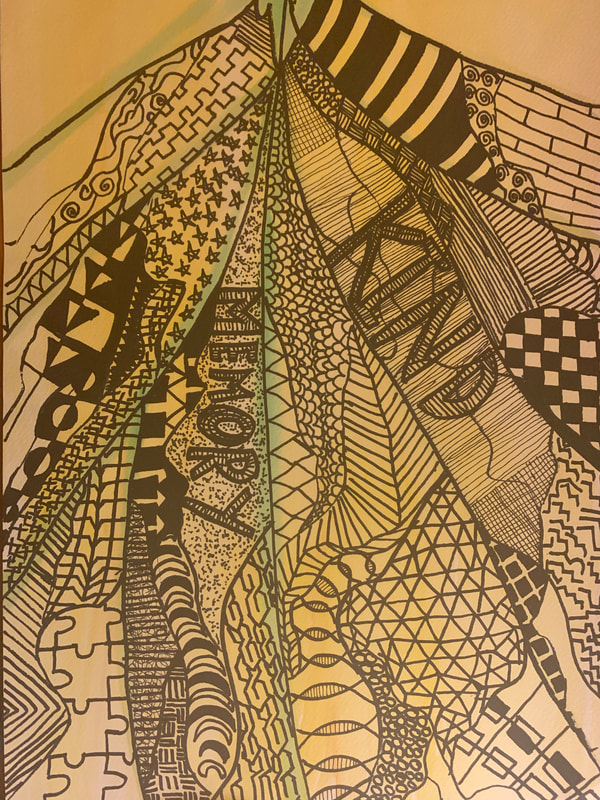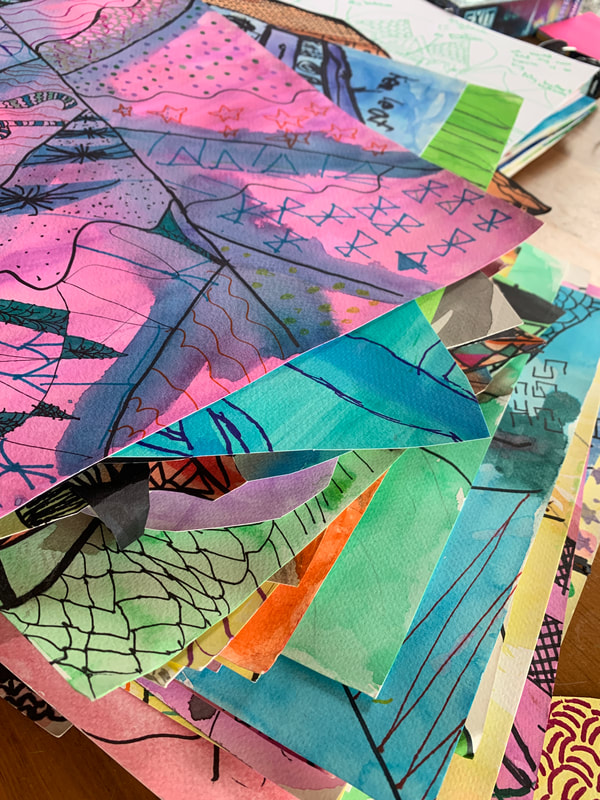Field work and land-based learning
This project was developed with a community called (Ranchlands) that I live in. It is around how stories can bring a community together. I interviewed people of all ages about positive stories.
I then brought those stories to the 2 schools, afterschool care, daycare, and extended care living. There I did art lessons with the community members that were inspired by someone else's story. It was funded through a City of Calgary Publics Arts grant. These were then printed onto Instel and attached along a fence.
...creating stories that are inspired by Edgemont outdoor locations. Students record a story (...OR interview of someone talking about that space OR create a guided walk as a story ---still working the details).
In the spring, families would be invited to visit the sites in their own time (using a digital map to locate the stories) and listen to the recordings found through a QR code. It would bring the community together and outside through stories- staying socially distanced!
My class is working with ERSI CANADA (https://k12.esri.ca/). To create an ARCGIS STORYMAP ( https://www.esri.com/en-us/arcgis/products/arcgis-storymaps/stories) to map out where in our community the signs will be. The QR codes could bring the families to the place in the Storymap website to find that story.
OK... just because I'm a BIG thinker!....
My question is..... if we were thinking of this idea, I wonder who else across Canada is thinking of this? How could we support others with what we've learned? Could we create a project/ challenge that could be shared out with others? Would you be interested in doing that?
It would be amazing if Samantha had her story journey set up next year, and then a piece at the end that shares a snapshot of youth across Canada sharing stories, music, art with their communities!
https://explorermindset.org/
https://coast.noaa.gov/estuaries/curriculum/watershed-in-a-box.html
https://coast.noaa.gov/data/estuaries/pdf/watershed-in-a-box-resources.pdf
file:///Users/ackatzko/Downloads/Anchor%20Charts%20for%20Reflection.pdf
file:///Users/ackatzko/Desktop/Anchor%20Charts%20for%20Reflection.pdf
Field work and land-based learning
I would LOVE (yes capitals because I'd be so excited!) a course that was about field based research with students or land-based learning. (I don't think this has to be a leadership level course). I teach in elementary school and a way to intentionally connect students to the natural world is through taking them all year (even in Canadian snow!) to a outdoor space and collect data that we reflect, map, analyze, hear indigenous stories about... So many of my colleagues ask me about: how to get parent letter for permission, what do I bring, what do I think about for safety, how to know what to collect.. so many questions! I'm still learning too! I love seeing other educators (like Becky Schnekser) doing similar things.
This project was developed with a community called (Ranchlands) that I live in. It is around how stories can bring a community together. I interviewed people of all ages about positive stories.
I then brought those stories to the 2 schools, afterschool care, daycare, and extended care living. There I did art lessons with the community members that were inspired by someone else's story. It was funded through a City of Calgary Publics Arts grant. These were then printed onto Instel and attached along a fence.
...creating stories that are inspired by Edgemont outdoor locations. Students record a story (...OR interview of someone talking about that space OR create a guided walk as a story ---still working the details).
In the spring, families would be invited to visit the sites in their own time (using a digital map to locate the stories) and listen to the recordings found through a QR code. It would bring the community together and outside through stories- staying socially distanced!
My class is working with ERSI CANADA (https://k12.esri.ca/). To create an ARCGIS STORYMAP ( https://www.esri.com/en-us/arcgis/products/arcgis-storymaps/stories) to map out where in our community the signs will be. The QR codes could bring the families to the place in the Storymap website to find that story.
OK... just because I'm a BIG thinker!....
My question is..... if we were thinking of this idea, I wonder who else across Canada is thinking of this? How could we support others with what we've learned? Could we create a project/ challenge that could be shared out with others? Would you be interested in doing that?
It would be amazing if Samantha had her story journey set up next year, and then a piece at the end that shares a snapshot of youth across Canada sharing stories, music, art with their communities!
https://explorermindset.org/
https://coast.noaa.gov/estuaries/curriculum/watershed-in-a-box.html
https://coast.noaa.gov/data/estuaries/pdf/watershed-in-a-box-resources.pdf
file:///Users/ackatzko/Downloads/Anchor%20Charts%20for%20Reflection.pdf
file:///Users/ackatzko/Desktop/Anchor%20Charts%20for%20Reflection.pdf
Field work and land-based learning
I would LOVE (yes capitals because I'd be so excited!) a course that was about field based research with students or land-based learning. (I don't think this has to be a leadership level course). I teach in elementary school and a way to intentionally connect students to the natural world is through taking them all year (even in Canadian snow!) to a outdoor space and collect data that we reflect, map, analyze, hear indigenous stories about... So many of my colleagues ask me about: how to get parent letter for permission, what do I bring, what do I think about for safety, how to know what to collect.. so many questions! I'm still learning too! I love seeing other educators (like Becky Schnekser) doing similar things.
